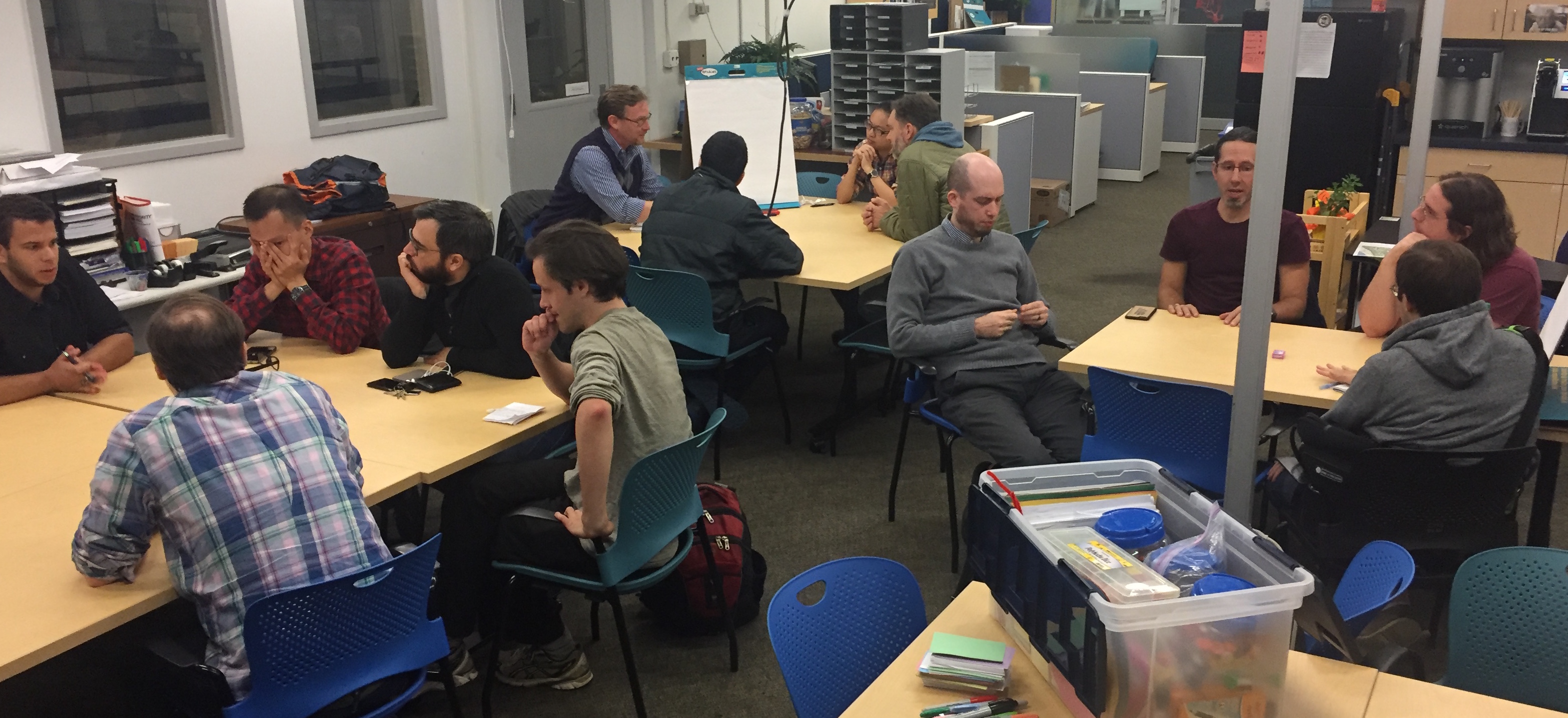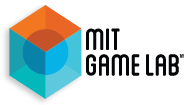Boston Game Maker’s Guild Workshop

A while back, a group of fourteen board game developers from Boston’s Game Makers Guild attended an evening workshop that was jointly organized with the MIT Game Lab. The event was a part of an ongoing project called Recasting Player Two which aims to find ways for academia to collaborate with the development community to promote diversity and equity in the game development and gaming culture.
More specifically, we have been studying issues related to local cooperative play. Every workshop focuses on a specific design challenge. This one revolved around trying to harness the power of the alpha-gamer, a board gaming term for a player who tries to dictate other players’ actions. We focused on coming up with concepts that don’t “defang” the alpha-gamer, but channel their impulse to control the flow of the game into something productive and fun for everyone involved.
The evening started off with a presentation by Mikael Jakobsson on related research and elaboration on the alpha-gamer concept. Though this controlling behavior can be deeply frustrating, it need not necessarily ruin the experience for the other players. The question was not how to design a game that would curb alpha-gaming—by introducing game mechanics that prevents it—but to harness those instincts to create experiences that appeal to everyone, alpha-gamers included. After outlining the issue, the participants were split into three groups tasked with coming up with game concepts.
The participants ferociously attacked the proposed design challenge. This self-selected group clearly shared a love for precisely this type of assignment, maybe even to an extent where the overall purpose which includes raising awareness of inclusivity aspects of design within the development community got a little lost. This shortcoming is not on them, it is our task as facilitators to find a formula for these events that allows both for the designers’ expert contributions, and the messaging and reflection processes we wish to nurture. The groups, almost entirely men from the Game Makers’ Guild, came up with a slew of possible design directions. The proposed designs ranged from formalizing the position of advice-giver, but creating some kind of tradeoff if the player wanted to give advice (like a pinch hitter stepping in during another players “turn” at a critical point in a baseball game), to having the alpha-gamer play a “managerial” role, where they would advise other players but not put anything into play themselves (like a coxswain in a rowing team).
Each of the three concepts took on drastically different themes. One game, tentatively dubbed “Silent Orchestra”, was set in a high-fantasy world where players fought against various monsters. It would place the alpha-gamer in the role of a formal advice-giver who could advise other players on the challenges they would face. Another, “I Told You So”, cast all the players in the role of teen horror movie characters trying to find a way out of the haunted house. Players would have to keep their actions to themselves, but could get more information to share with the team in exchange for some kind of handicap. The last group explored the alpha-gamer-as-manager, using the analogy of a rowing team where responsibility lessens down the hierarchy, but so does actual physical work.
To us, the workshop was proof that this form of working together with the development community using the language of design has the potential to accomplish change that is hard for either group to accomplish on their own. It also showed that there is more work to be done in improving the format for these collaborations. Just as the participants of the workshops are designing co-op games where players with different interests and abilities are made to function well together, the participants of this project will have to test and refine the system for developer/academic collaboration in a development process where each workshop is another iteration on the design.
This post was written by workshop facilitator Claudia Lo, with some input and additions by the project leader Mikael Jakobsson. Funding for Recasting Player Two has been provided by ReFiG. Thanks to Game Makers Guild. If you wish to get involved in their activities, check out their Meetup Page.
